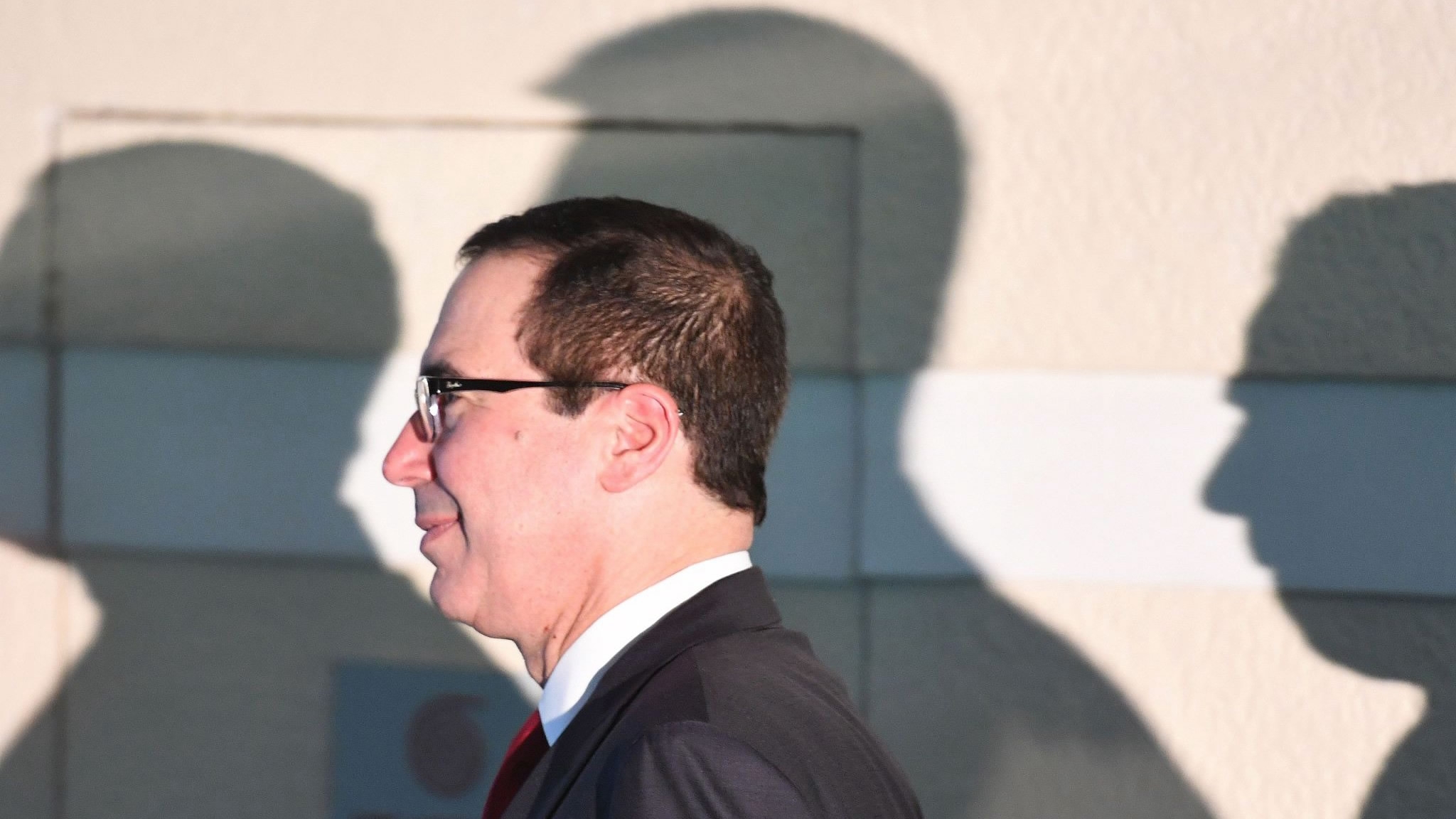
(Photo: CGTN)
A delegation of high-level US officials, headed by Treasury Secretary Steven Mnuchin, is in Beijing to discuss prickly economic and trade issues with a Chinese team led by Vice Premier Liu He.
The Chinese Ministry of Foreign Affairs said on Wednesday that the talks will be constructive as long as the US delegation brings along sincerity and mutual respect.
High-level delegation for highly-anticipated talks
Trade tensions have been on the rise between the world's two largest economies amid tit-for-tat punitive tariffs.
A seven-member delegation comprised of senior US officials reflects the importance the US government is placing on the trade talks, and displays the divergent stances in President Donald Trump's administration on China.
Mnuchin, the head of the delegation and Trump's campaign finance director, holds the top cabinet post overseeing economic and financial regulatory policy.
Despite being one of the administration's "globalists" in opposition to tariffs, Mnuchin has voiced as of late strong support for Trump's tougher trade approach to China and steel and aluminum tariffs on the EU.
Another member of the US delegation is Trade Representative Robert Lighthizer, a tough negotiator who has long expressed views that China has failed to live up to its WTO obligations. The initiator of the "Section 301" investigation into China's intellectual property and technology transfer practices said this week that changing the US relationship with China is "a big, big challenge" that would play out over years.
Lighthizer's ally, White House Trade and Manufacturing Adviser Peter Navarro – a trade skeptic in the team – wants the US to withdraw from NAFTA, TPP and other trade deals, and recently alleged on Fox Business News that tariffs are designed to compensate the United States for "robbing our technology blind."
The new head of the National Economic Council Larry Kudlow has long been an advocate for free market and trade, and has frequently criticized Trump's tariff approach. Upon taking the position, he has referred to tariffs as a negotiating tactic aimed at achieving fairer trade relationships.
US Commerce Secretary Wilbur Ross is a strong advocate for tariffs to level the playing field for US companies, but has sent contradictory signals towards China.
An impossible unanimous voice
Given the different views the US officials hold on trade policy and tariffs, there is speculation that having one voice would be easier said than done.
The members have different experiences, personalities and approaches to the trade issue, which reflect the "consistent image of the US being composed of diverse groups," said Liu Baocheng, dean of the Center for International Business Ethics at the University of International Business and Economics.
"In spite of differences, they do have one clear objective – to bargain with China on the key issues of trade imbalance, intellectual property and protection," Liu said.
"They are here to touch base with China with quite a level of sincerity though and an open mind to see what type of cards China can place on the table to solve these issues."
Liu said the talks are "a valuable opportunity for both sides to explain the true situation and build a level of trust," especially that some delegates are first-time comers to the country.
Asked about the possibility of concessions each side could make, Liu noted that "it is too quick to seek a short-term view" which is not the US delegation's intention.
The two sides are expected to engage in a more grand discussion, touch on the basic principles and revisit the realities that they are facing.
What backs China on the negotiating table?
Asked about what supports China at the negotiating table, Liu noted "it was neither the ideology nor China's power, but the reality and the type of fairness."
"China does not deliberately seek trade surplus with the US, as a firm believer of market economy and free trade, which incidentally are lectured by the US. But we use them too well and the US does not feel they are taking fair advantage of it."
Chinese consumption power is on the rise, and is particularly represented by an expanding middle class and the rising buying power in rural areas, Liu noted.
"So we have a very strong domestic market base and China also has the capability to upgrade on its own innovation program, particularly Made in China 2025."
But "when China is very much interdependent with the US, it's not exactly a one-way street," Liu concluded. "If both sides go to a destructive way, both sides will suffer."


